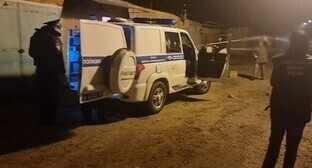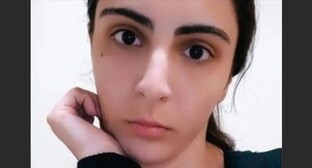18 February 2011, 23:00
Documentary "Those Disappeared" presented in Georgia
On February 16, the House of Cinema hosted the first run of a new documentary made by the video studio of the Human Rights Centre. The film "Those Disappeared" tells the story about un-investigated cases of human disappearances in the territory of the country.
The "Caucasian Knot" correspondent reports that the film presents four inquiries conducted by the authors of four unrelated disappearances.
The first part shows last year's events: disappearances of Giga Elizbarashvili, 17 (village of Gurdzhaani in Kakheti), and Vasil Tsiklauri, 14 (village of Arkhiloskalo in the Dedoplistsekaro District).
The family of Giga Elizbarashvili and law enforcement officials has differing opinions: the MIA and the prosecutor's office argue that Giga's body was found near the rebroadcast tower, where local teenagers are so fond to climb; while his parents doubt that this is the body of their son and demand a more detailed examination.
Vasil Tsiklauri disappeared under unclear circumstances: in the evening on September 26, 2010, he ran out of the house, snatched a cap out of his friend's hands and shouting "This is my cap!" ran into the forest. His mother said that he had some connections with a neighbour's teenager, who kept a rifle. The neighbour guys heard three shots that evening, but they did not pay attention.
The third case narrated in the film refers to disappearance in 2005 of Sadardin Palangov, an ethnic Azerbaijani and a resident of the village of Sadakhlo, Marneuli District, also known as Gara-Mola. He spoke at the rally in Marneuli, where local Azerbaijanis demanded from the then authorities to stop racketeering and harassment. Six years ago, Palangov's request to have a meeting was responded by President Mikhail Saakashvili - he wrote a letter to Palangov and expressed his intention to meet him. However, one of local bureaucrats took the letter away from him straight in Palangov's house and threatened with execution. A few days later the man did not return from the pasture, where he drove a flock of sheep. His neighbours found in the field only his cap, walking stick, a blood stain on the grass and 5 pistol cartridges. However, according to Palangov's son, the prosecutor's office and the MIA refuse to admit the fact that evidences had been presented to them and would not initiate a criminal case, "because of absence of evidences and the body."
The final case deals with the disappearance in Tbilisi in 2009 of Said-Hussein Tazbaev, Deputy Minister of Culture in the government of the Chechen Republic, who was granted political asylum in Georgia. His relatives believe that he was kidnapped by Russian special services; therefore, they think that the rest of the family is unsafe in Georgia.
The authors of the film note that they had deliberately taken four different cases in order to "show the inaction of law enforcement bodies in disappearance cases."
"Currently, Georgia has 907 missing persons; however, on none of the cases investigation is underway. We conducted our own investigation of these four cases and made a film with a message to law enforcement bodies urging them to start the inquiries," Ucha Nanuashvili, head of the Human Rights Centre, told the "Caucasian Knot" correspondent.
Director Georgi Dzhanelidze undertook the project last March, when the MIA announced, on request of human rights activists, the number of missing persons in recent years: it turned out that 907 persons were registered in Georgia as missing, apart from those who never returned from the 2008 war.
Author: Beslan Kmuzov Source: CK correspondent




